A conveyor system is a fast and efficient method for moving heavy and bulky objects or materials from one place to another. It is usually implemented to ease the process of transportation and minimize human errors. Read More…
VAC-U-MAX is a premier manufacturer of quality conveyors among other similar products and services. VAC-U-MAX produces its equipment to handle small parts and heavy metal powders.
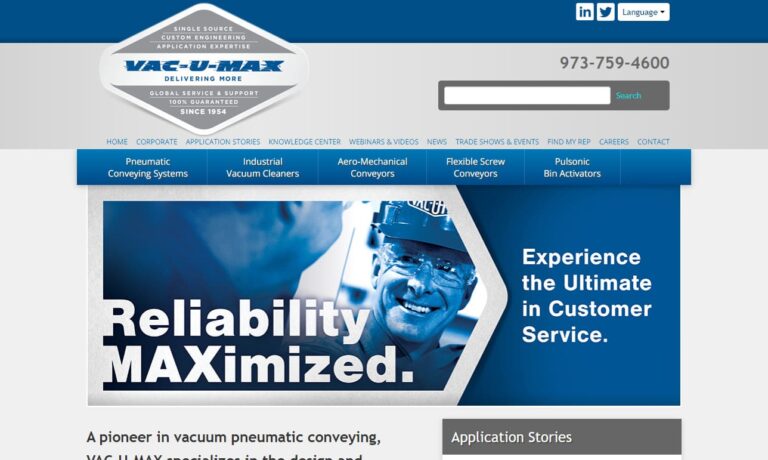
mk North America, Inc. offers the widest variety of conveyors in the industry. Our vast product line features a variety of aluminum frame and stainless-steel conveyors that are built to last. At mk we believe in offering not only a better product, but also a better solution – which is why we will work with you to ensure your unique application is matched with the best possible conveyor...
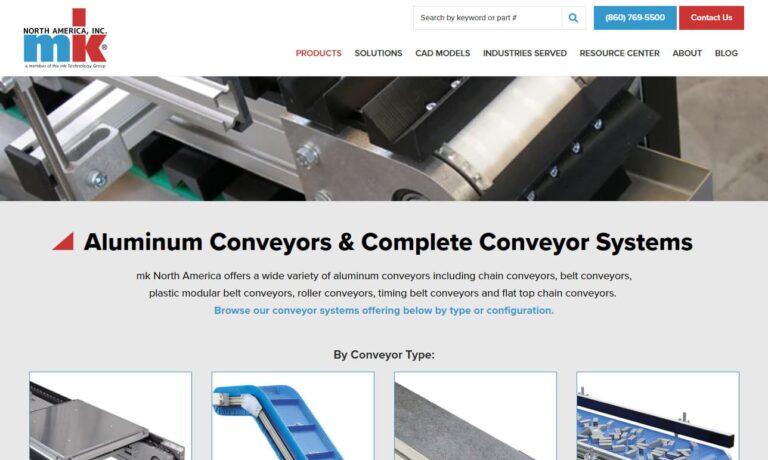
At Slate River Systems Inc, we take pride in our expertise as innovators in the field of conveyor systems. With years of collective experience, our team is committed to delivering cutting-edge solutions tailored to meet the diverse needs of our clients. Our conveyor systems are engineered to optimize efficiency and streamline material handling processes across various industries.

Redline Systems, Inc. is a leading provider of innovative conveyor solutions. They offer various conveyor types, including portable belt conveyors, incline conveyors, horizontal conveyors, stainless conveyors, and more. Experience the difference with Redline Systems, where innovation meets reliability in conveyor technology.
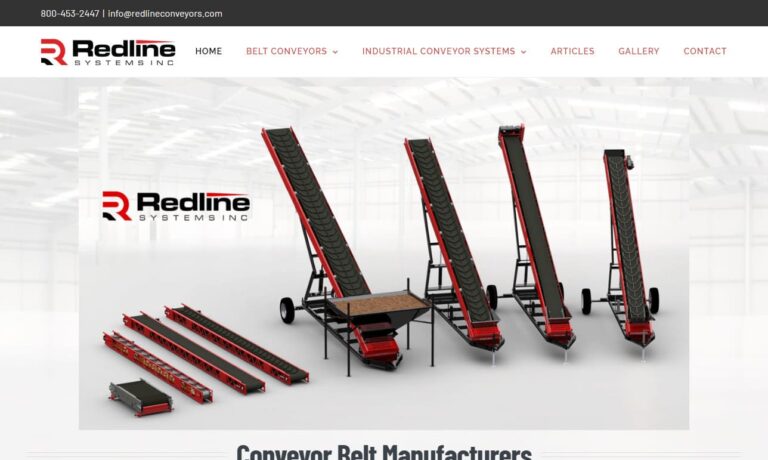
Impact Automation stands as a prominent force in the field of automation, specializing in the design and implementation of advanced conveying systems tailored for diverse manufacturing processes. With a focus on efficiency, precision, and adaptability, we offer a comprehensive product range that includes sorter feed systems, sorter solutions, traditional conveyors, and plastic belt conveyors.

Spiroflow offers a complete range of mechanical conveying solutions in the industry. The staff at Spiroflow can recommend the best method to meet your conveying needs.
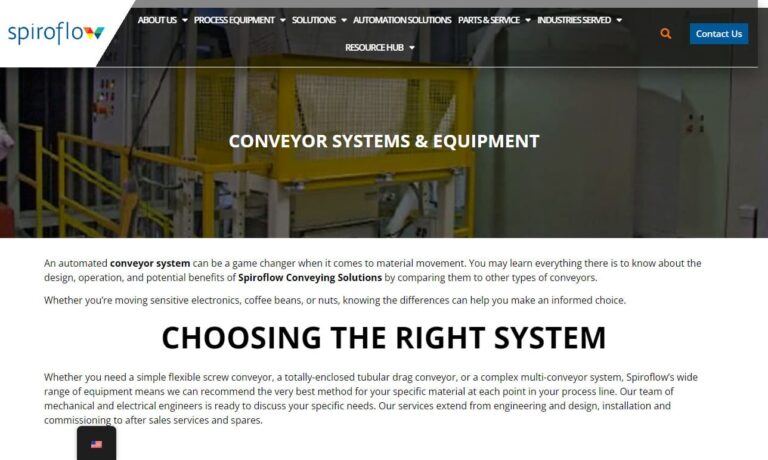
Vecoplan leads the charge with cutting-edge technologies that revolutionize waste and recycling. From versatile shredders and granulators to efficient conveying and sorting systems, Vecoplan offers a wide array of solutions for handling wood, paper, plastics, textiles, and more. Our tailored equipment sets new industry standards, meeting the demands of even the most challenging applications.
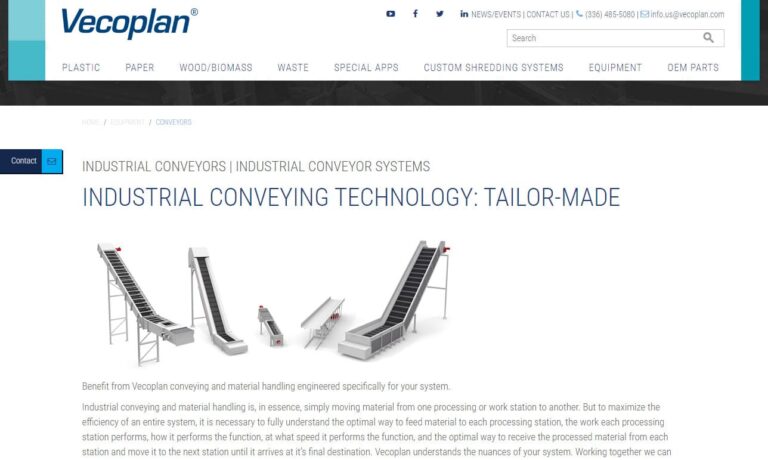
More Conveyor System Manufacturers
A conveyor system can use rollers, belts, wheels, and chains to transport materials; however, the construction also depends on the type, dimensions, weight, and durability of the material to be transported. Conveyor systems are widely used in many industries for material handling, shipping, processing and manufacturing.
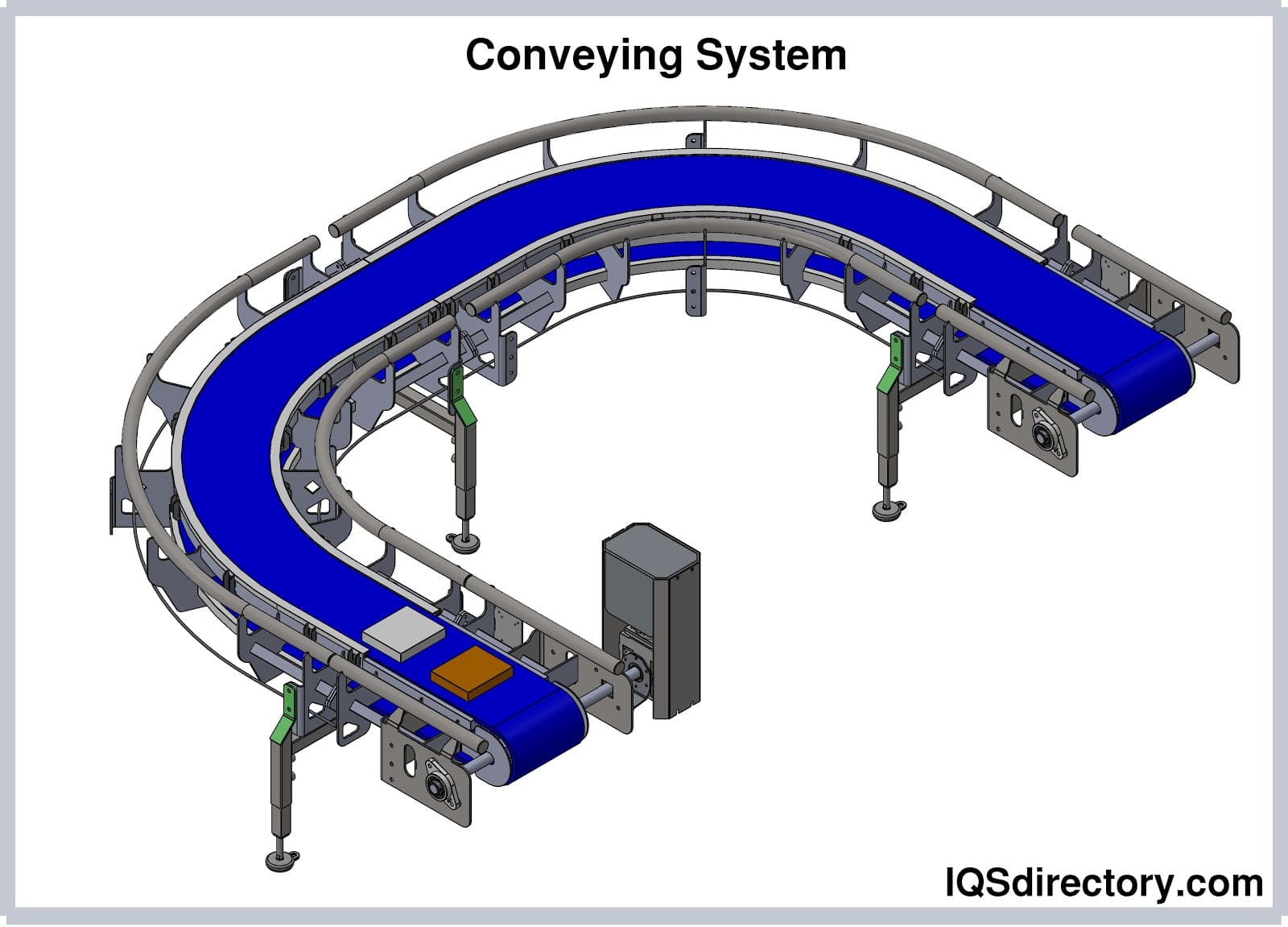
Materials Used in a Conveyor System
A conveyor system should be resistant to wear and impact. This is because these systems may used for transporting many heavy and sharp objects that could cause deformation. The handling materials that are used by conveyors are UHMW, nylon, Nylatron NSM, HDPE, Tivar, Tivar ESD, and polyurethane. For using conveyor systems, static control is the most important factor. Therefore, special kinds of materials are used to dissipate the electrical charges from the conveyor for its smooth functioning.
Parts of a Conveyor System
Conveyor systems function with the help of the following parts. These are:
- Conveyor Belt – The conveyor system uses a belt wrapped around motorized pulleys for its movement. The belt of a conveyor is made of thick and durable material, and it moves between the pulleys when electric current is applied.

- Support System – There is also a support system in conveyors that helps in smooth functioning of the belt. It is designed to hold the materials in place and to move smoothly without sagging.
- Motorized Pulleys – There are at least two pulleys for any conveyor system. These pulleys are important as these help in controlling belt movements. The first pulley is called the drive pulley, and the other is the tail or return pulley. Sometimes, an idler or dummy pulley between these two moves the belt and helps to manage the tension created in the belt.
- Belt Cleaner – The belt cleaner is an important part of the conveyor system. It cleans the belt of the conveyor after the load is removed to avoid any malfunctioning.
- Belt Drive – The drive for the belt can be placed anywhere on the conveyor systems. Usually, the drive is located at the discharge or the head of the belt. The location of the drive also depends on the design of the conveying systems.
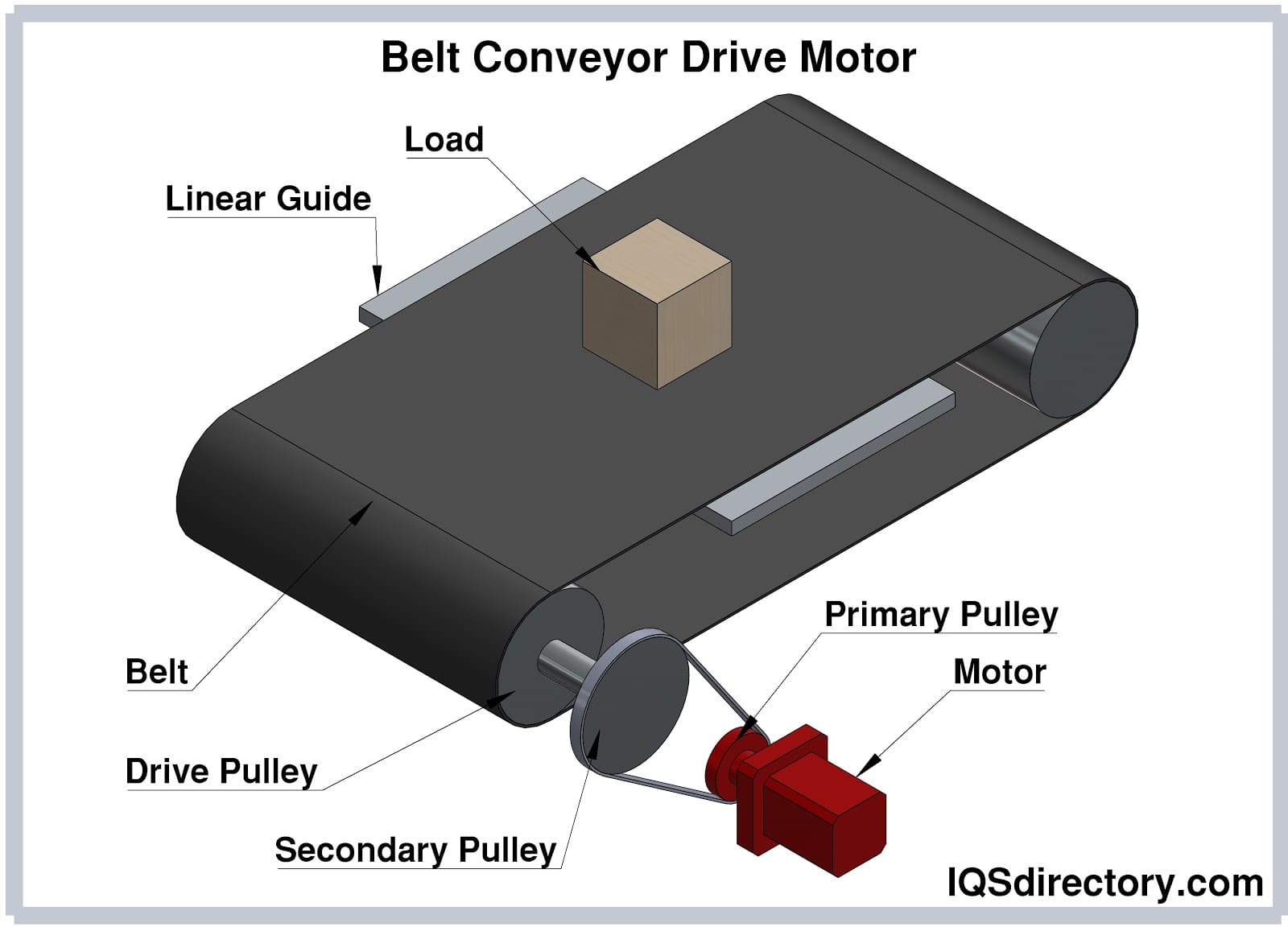
Types of Conveyor Systems
There are multiple types of conveyor systems that differ in design and processes. These are:
Belt Conveyors
- A belt conveyors is the simplest and most commonly used conveyor system; it can have variable speed.
- It has a belt that is placed on a steel frame with rollers attached to helps in its movement.
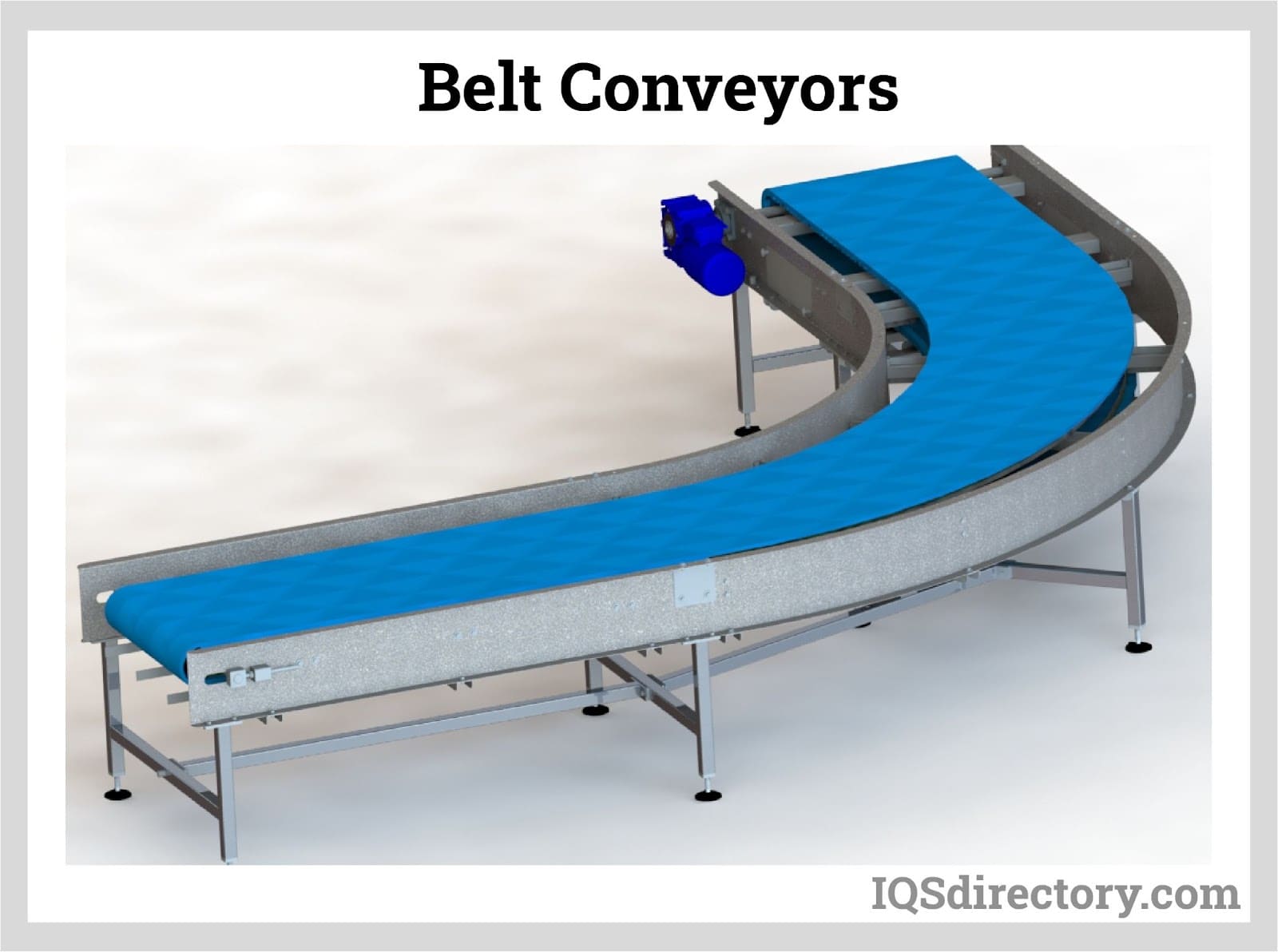
Gravity Roller Conveyors
- Gravity conveyors have a set of rollers that are spaced equally and are connected to a side frame.
- There is a lot of space for material movement, and if the conveyor is tilted, the materials will roll down with gravity.
- These are used in shipping companies for loading and unloading of trucks.
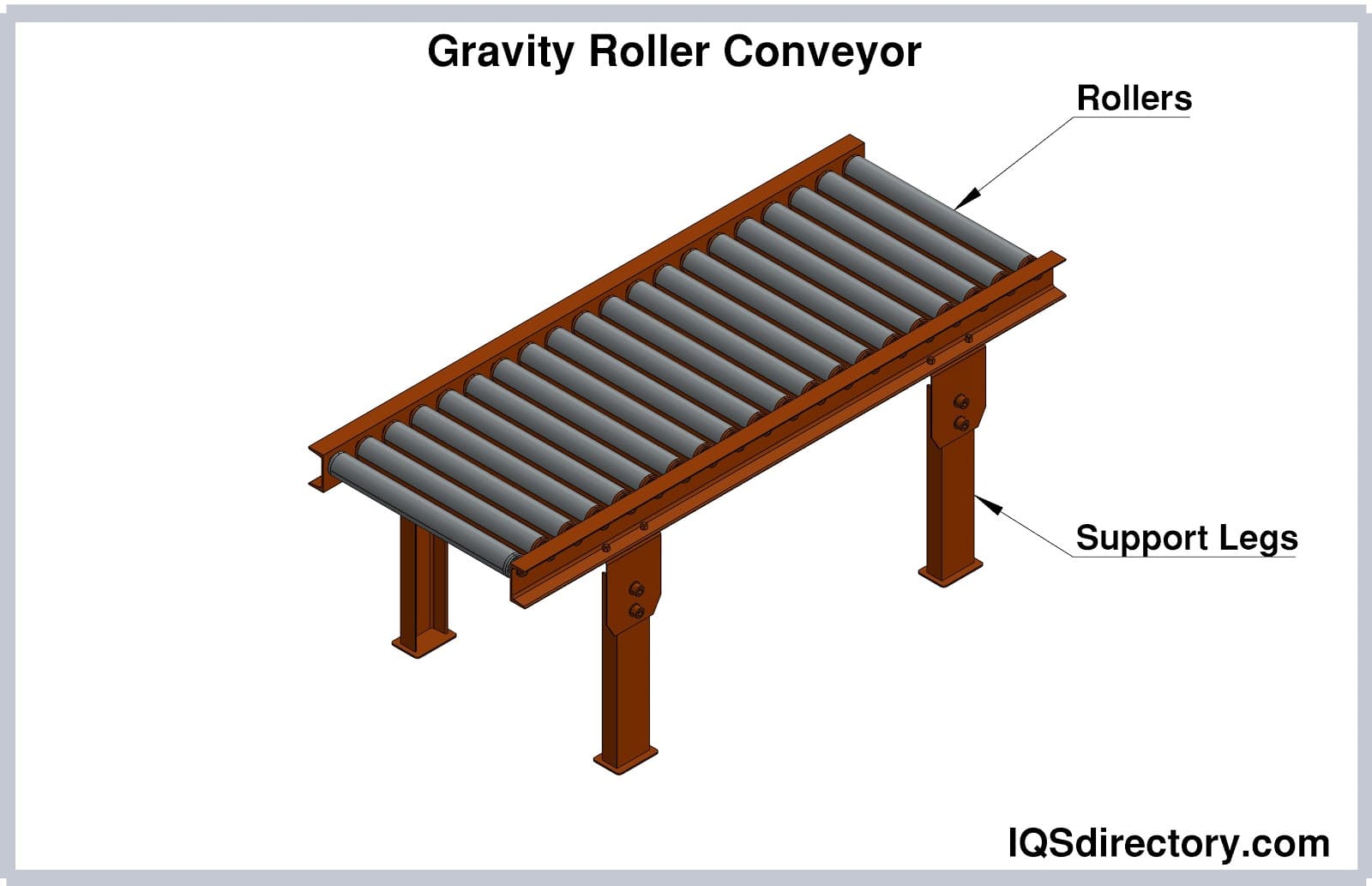
Chain Conveyors
- A chain conveyor consists of two or more sets of chains that make contact with the bottom of the materials moved.
- It is an ideal conveyor for materials that are heavy or have uneven surfaces.
Motorized Roller Conveyors
- Motorized roller conveyors have motors that are placed along the frame for rolling.
- The number of motors is dependent on the type of load to be moved.
- A sensor on the conveyor helps the motor start and stop to avoid any inconvenience.
Slat Conveyors
- The flat slats these conveyors are built with have a very smooth surface and are connected with chains.
- The smooth surface helps in preventing damage to materials, making this an ideal conveyor for assembly applications.
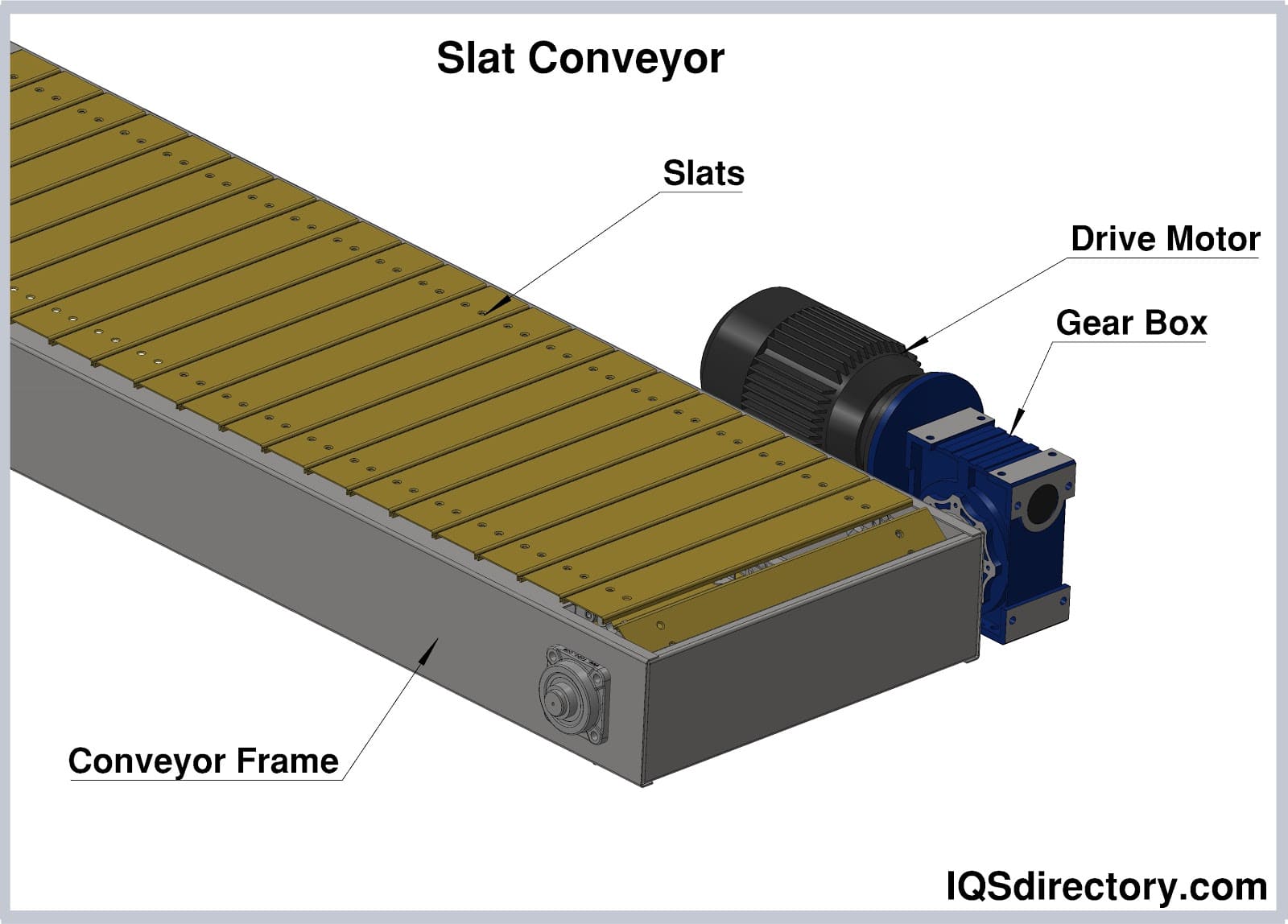
Overhead Conveyor Systems
- There are many different types of overhead conveyors with the same function but different designs; these types are enclosed track, open track, and chain overhead conveyors.
- The aim of these conveyors is to free up floor space and make movement easier and more efficient.
Monorail Conveyors
- This type of conveyor uses rails powered by signal lines.
- It is ideal for materials that need to move a long distance.
Power and Free Conveyors
- These conveyors are designed to move parts through the production and assembly process.
- They are helpful in moving parts from one workstation to another.
Inverted Conveyors
- These are floor mounted conveyors with a drive system with no belts and chains.
Paternoster Conveyors
- A paternoster conveyor is a vertical conveying system with an equal spaced load carrier.
- It is connected to a chain drive that moves in a continuous loop. It’s also known as a platform conveyor.
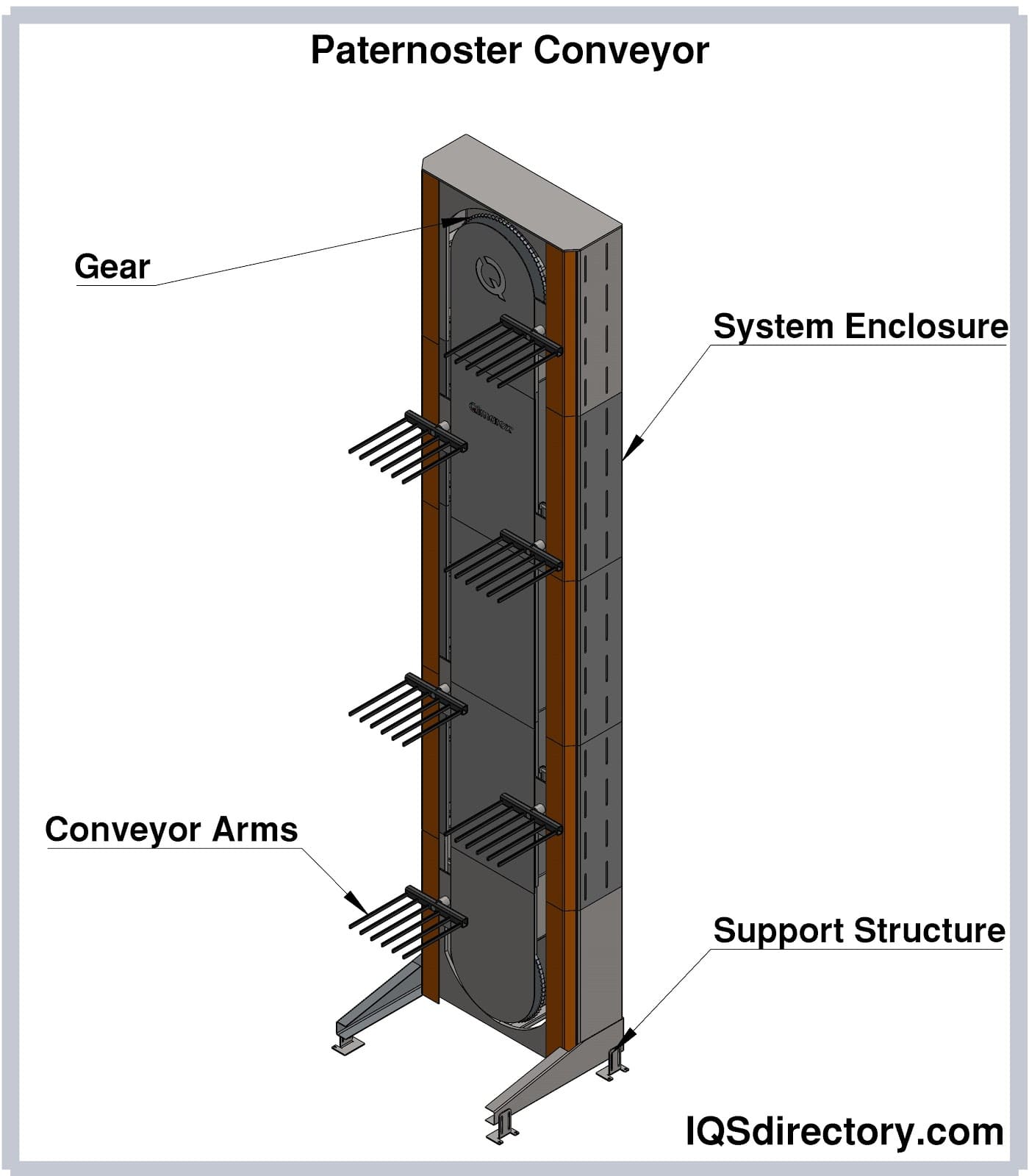
Chute Conveyors
- This conveyor has a smooth, flat surface made of wood, metal or plastic.
- The frame on which the conveyor is mounted can be straight, spiral, or circular.
Screw Conveyors
- The central part of this conveyor is a rotating helicoid on the shaft inside a pipe.
- Screw conveyors are used to move granular products, chips, or other loose substances in bulk.
- Some other types of conveyor system are pneumatic, vibratory, chain on edge, skid, and friction conveyors.
Applications of Conveying Systems
- Conveyors are used to move pieces for the sintering process into high-temperature furnaces.
- These systems are also used for the packaging, assembly, and shipment of many products.
- They are also used in production lines, thus reducing labor and accidents.
- Conveyors are also widely used in the pharmaceutical industry for processing and preventing contaminations.
- Other industries such as mining, airports, metal industry, printing, and food use conveying systems for the efficient and easy movement of materials.
Choosing the Correct Conveyor Systems Manufacturer
To make sure you have the most positive outcome when purchasing Conveyor Systems from a Conveyor Systems Company, it is important to compare at least 4 or 5 Suppliers using our list of Conveyor Systems manufacturers. Each Conveyor Systems Manufacturer has a business profile page that highlights their areas of experience and capabilities and a contact form to directly communicate with the manufacturer for more information or request a quote. Review each Conveyor Systems company website using our patented website previewer to get an idea of what each business specializes in, and then use our simple RFQ form to contact multiple Conveyor Systems businesses with the same form.

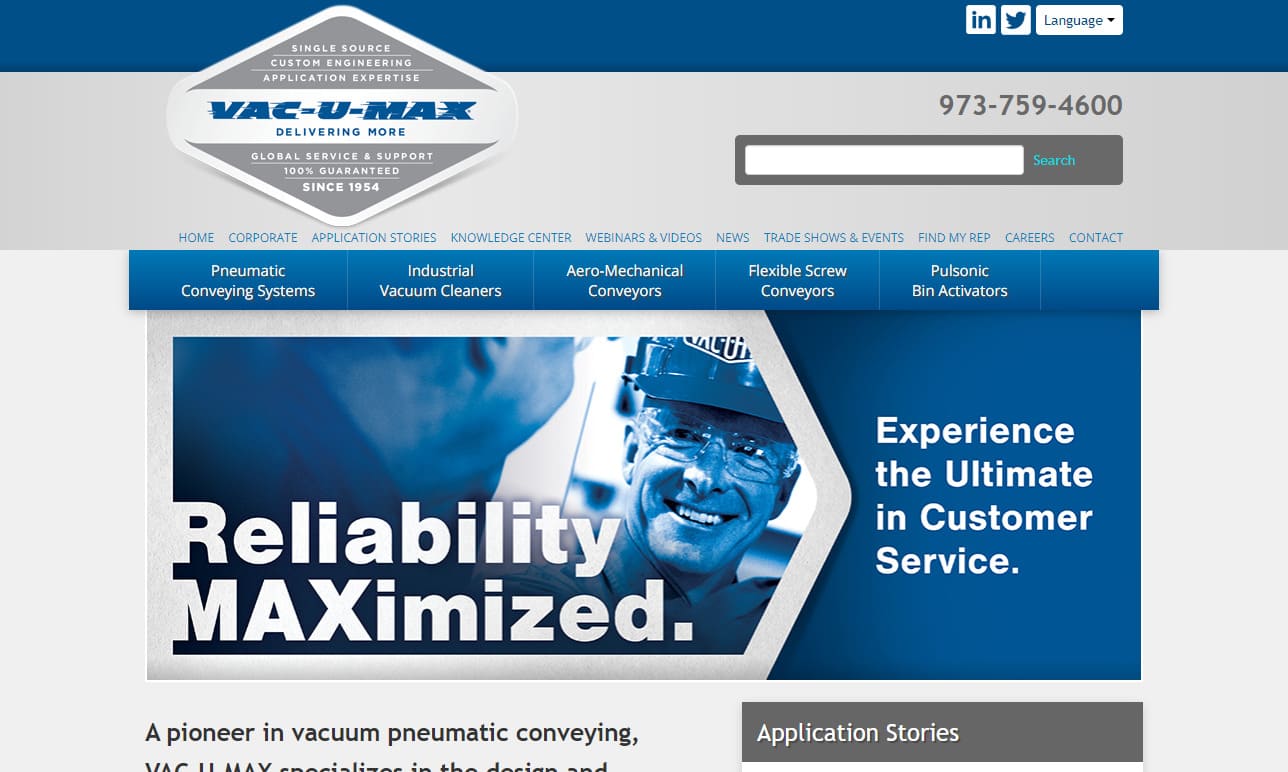
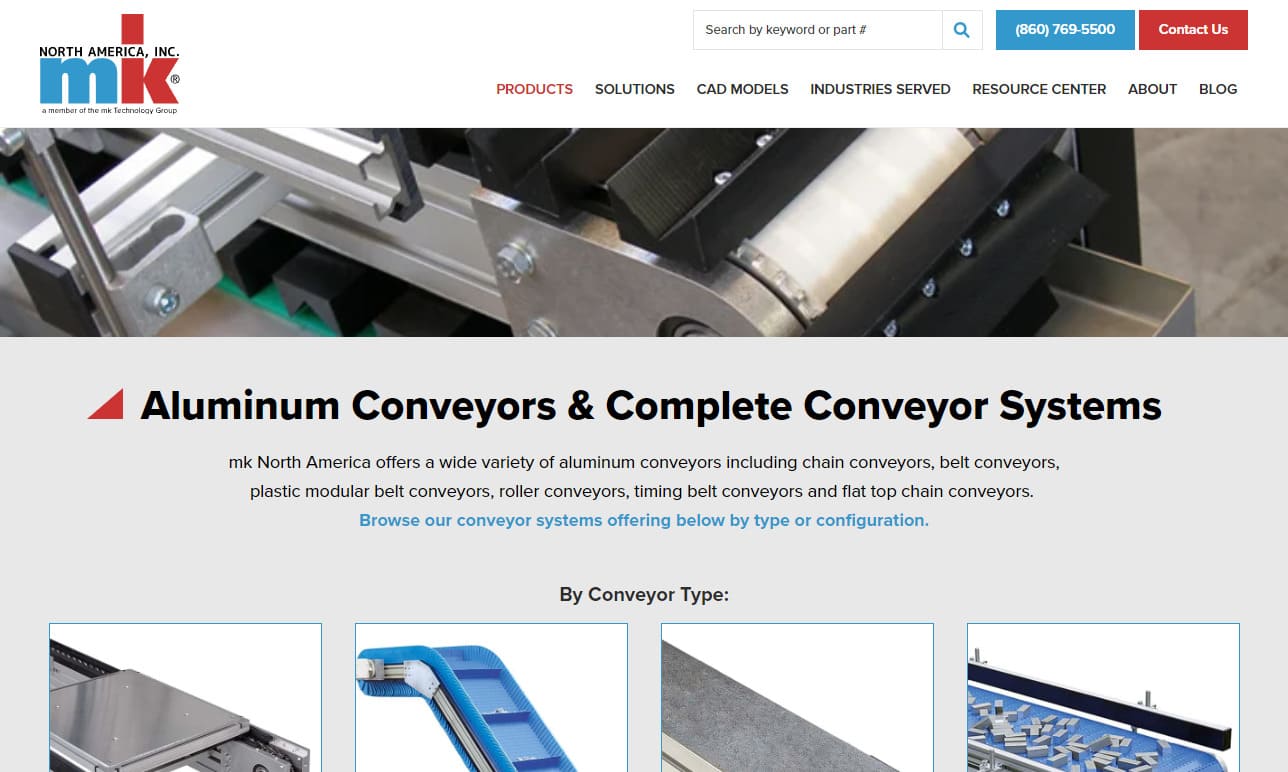

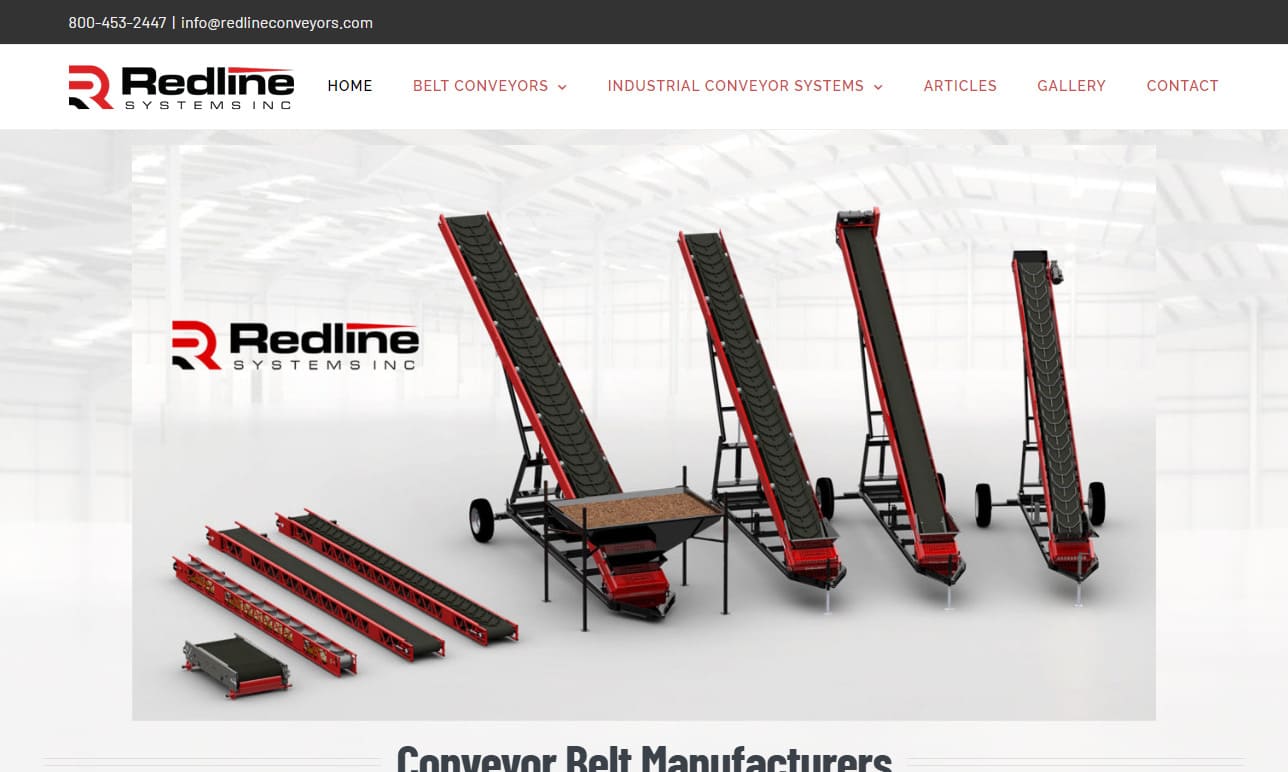

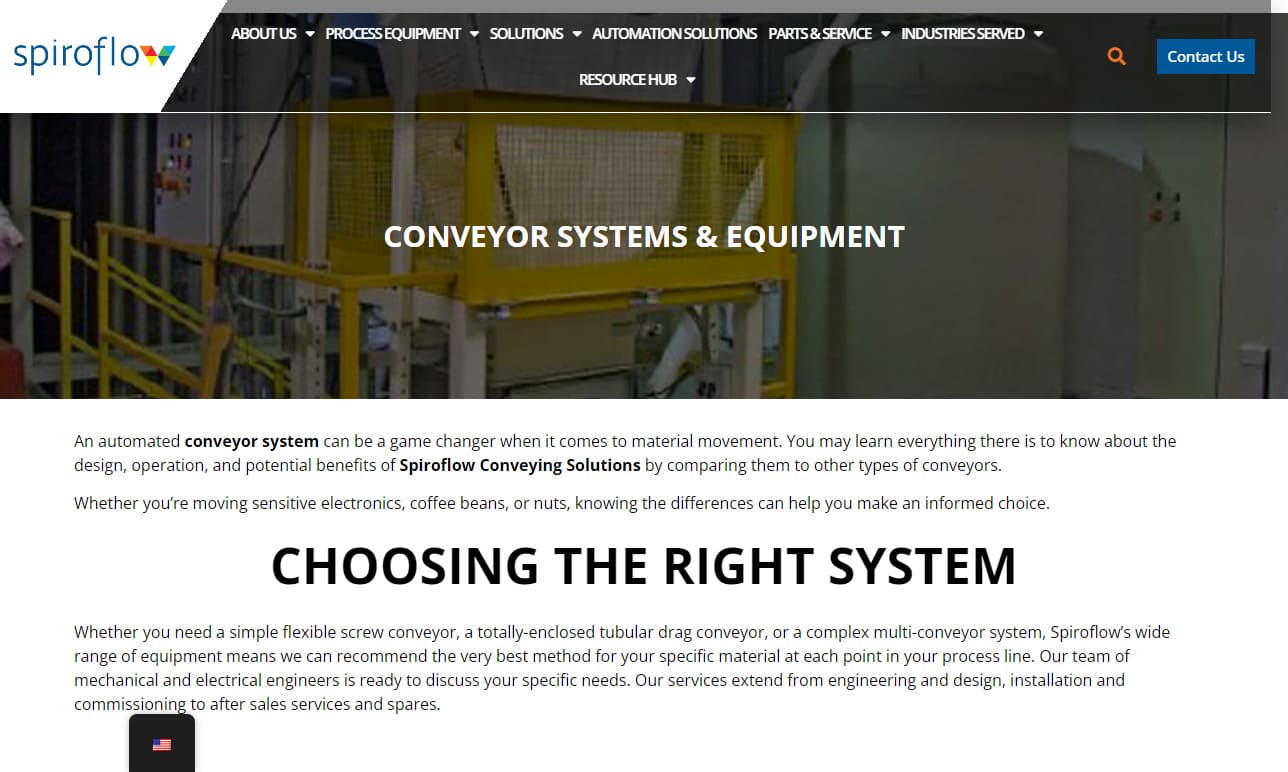
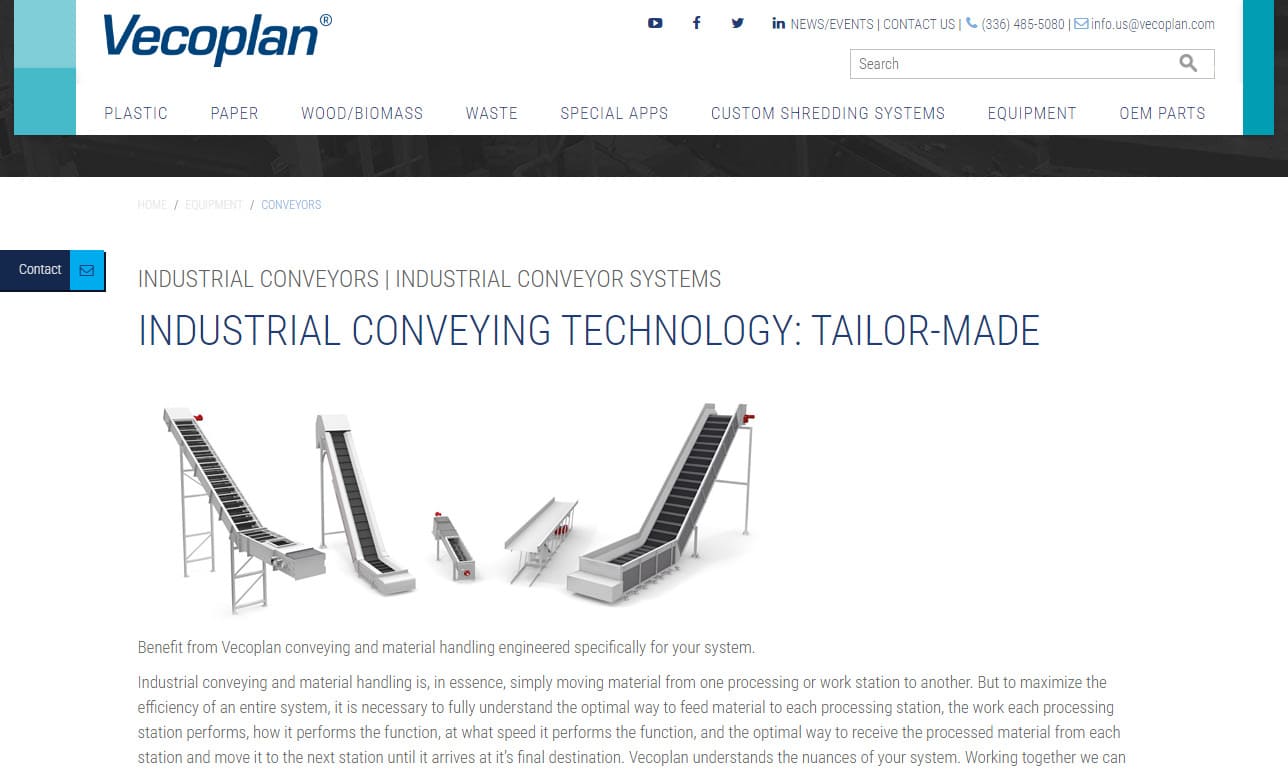
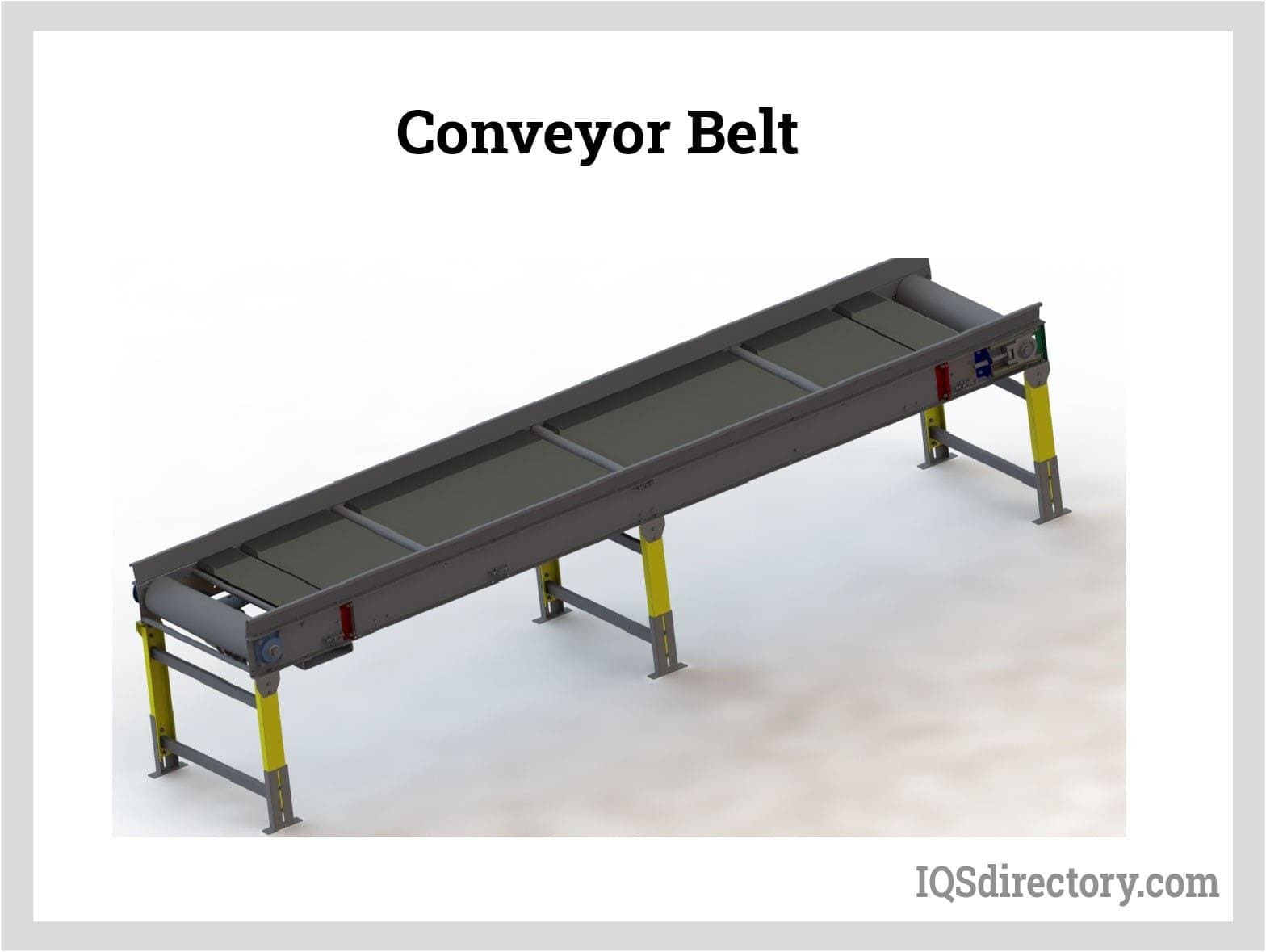

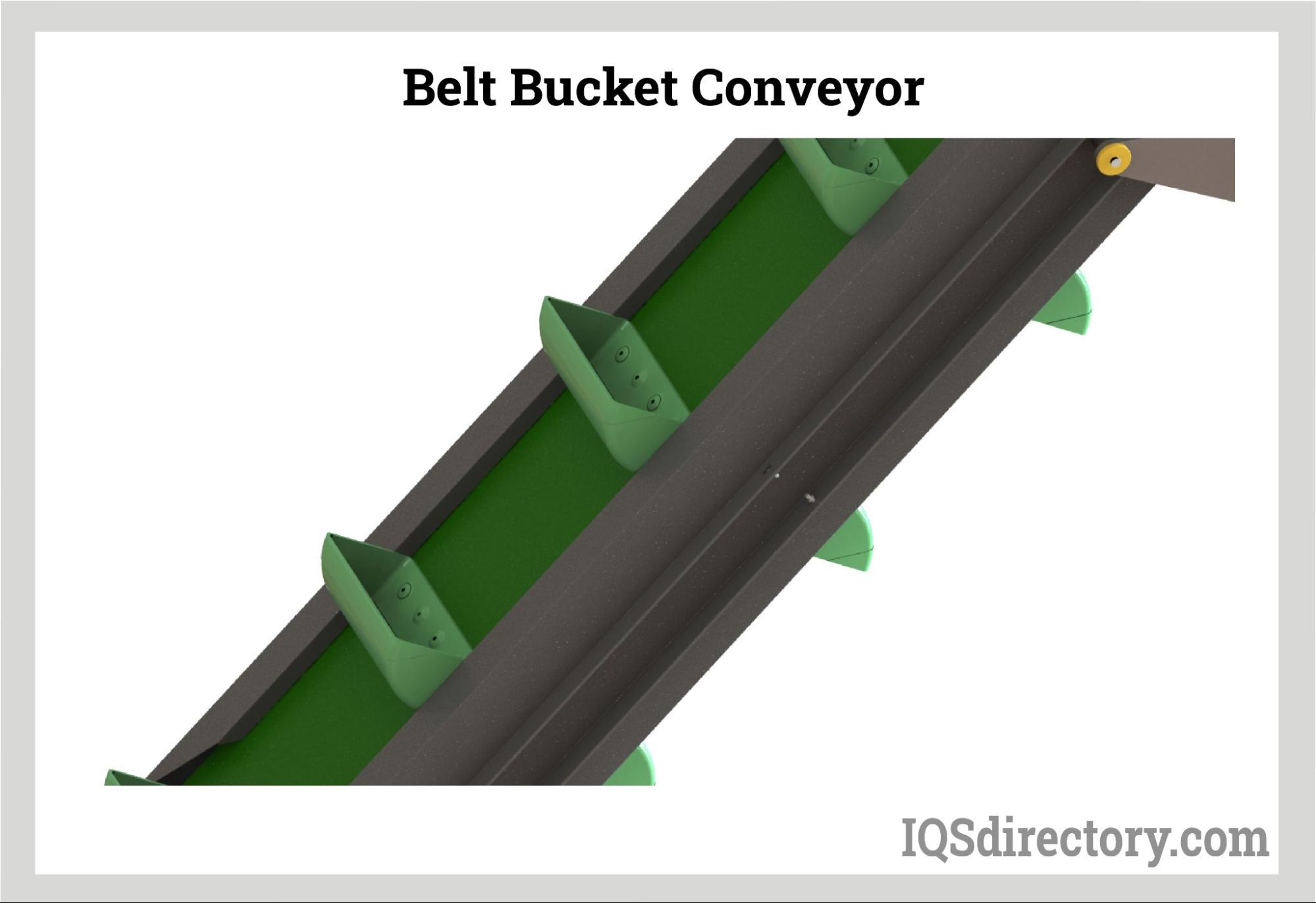
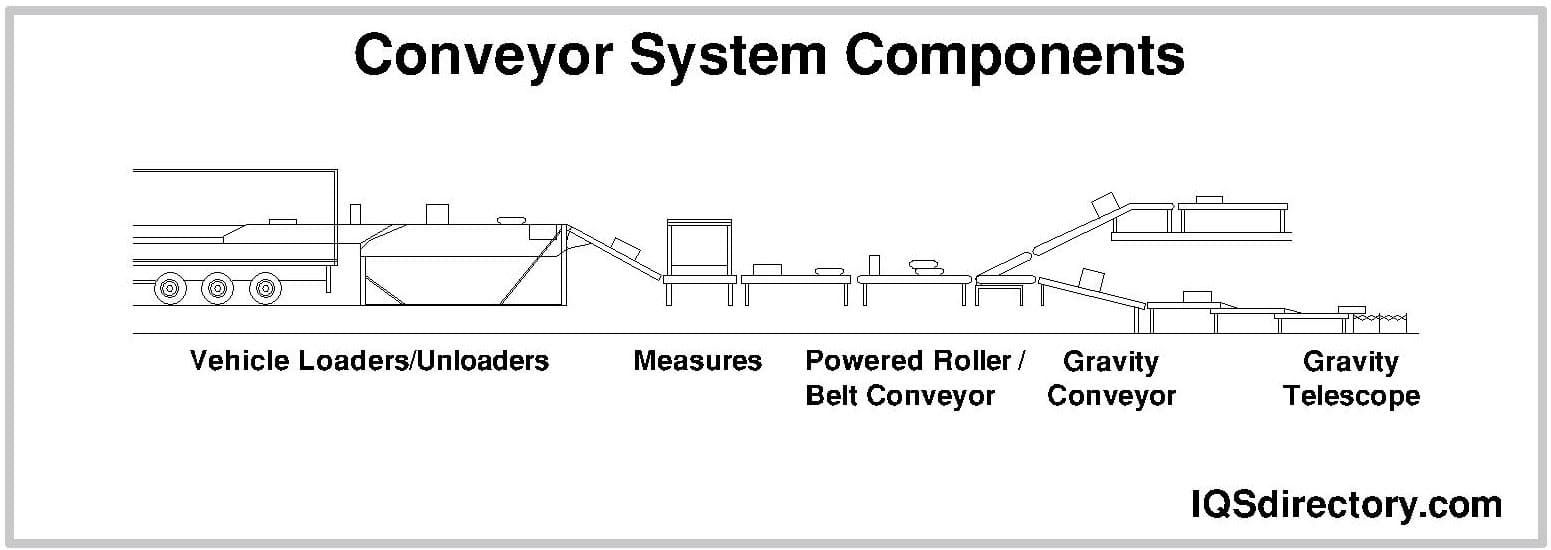
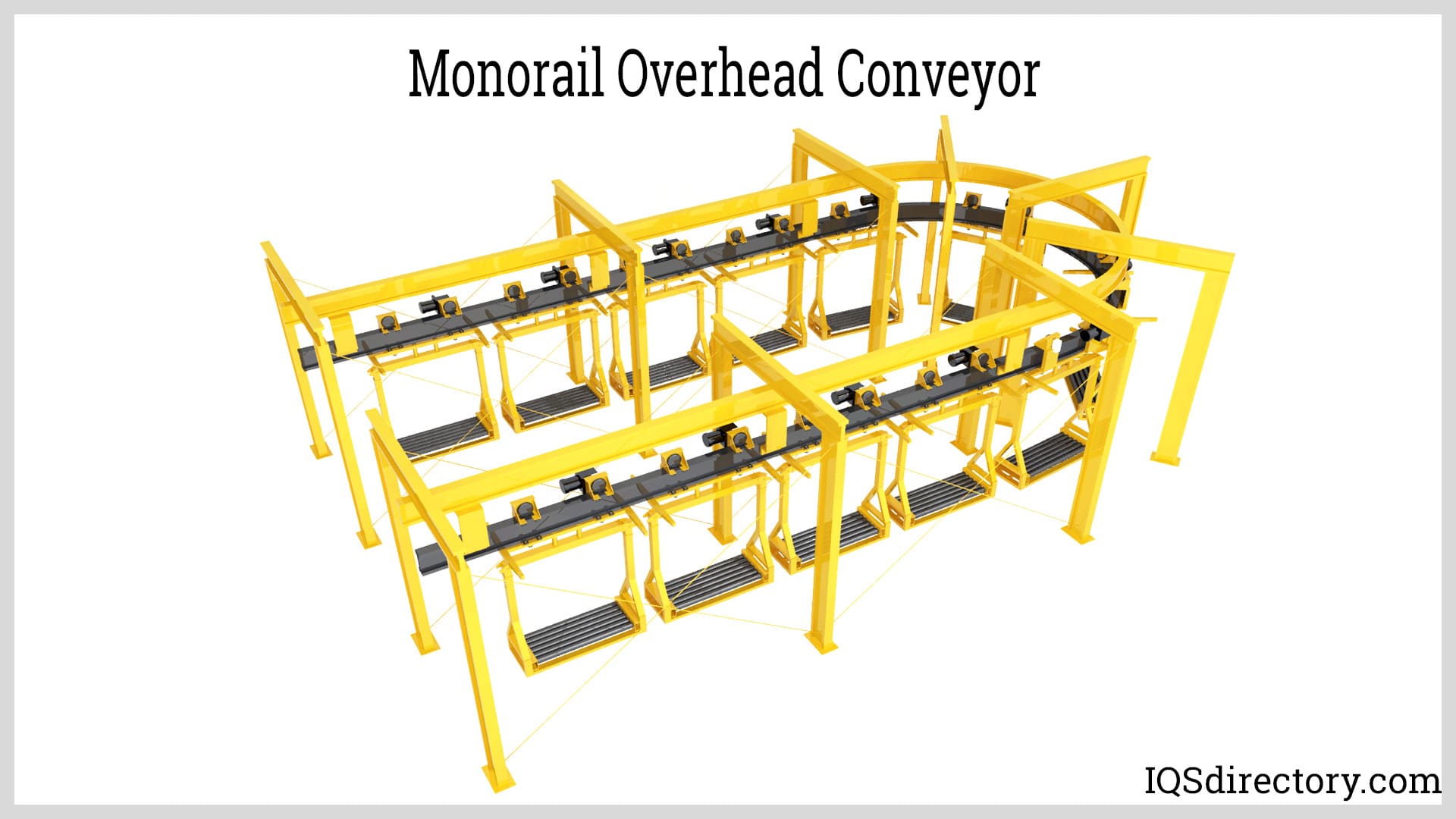
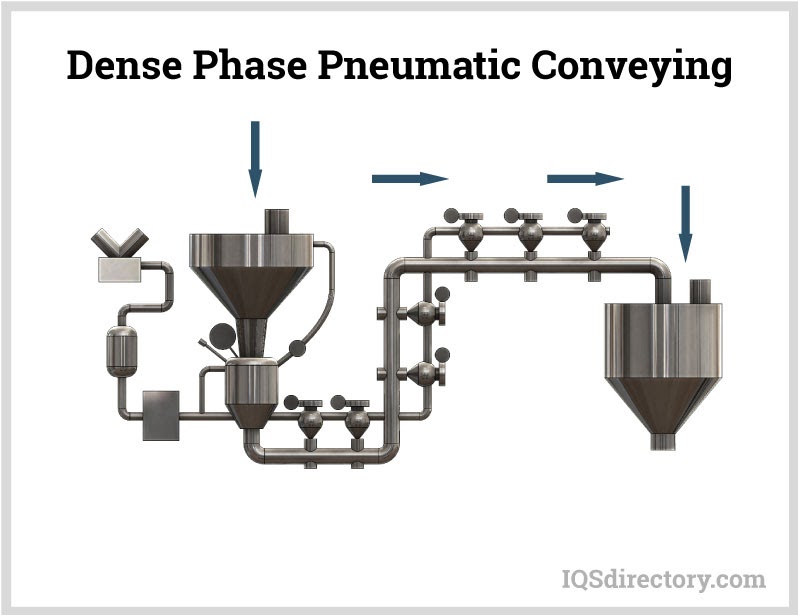
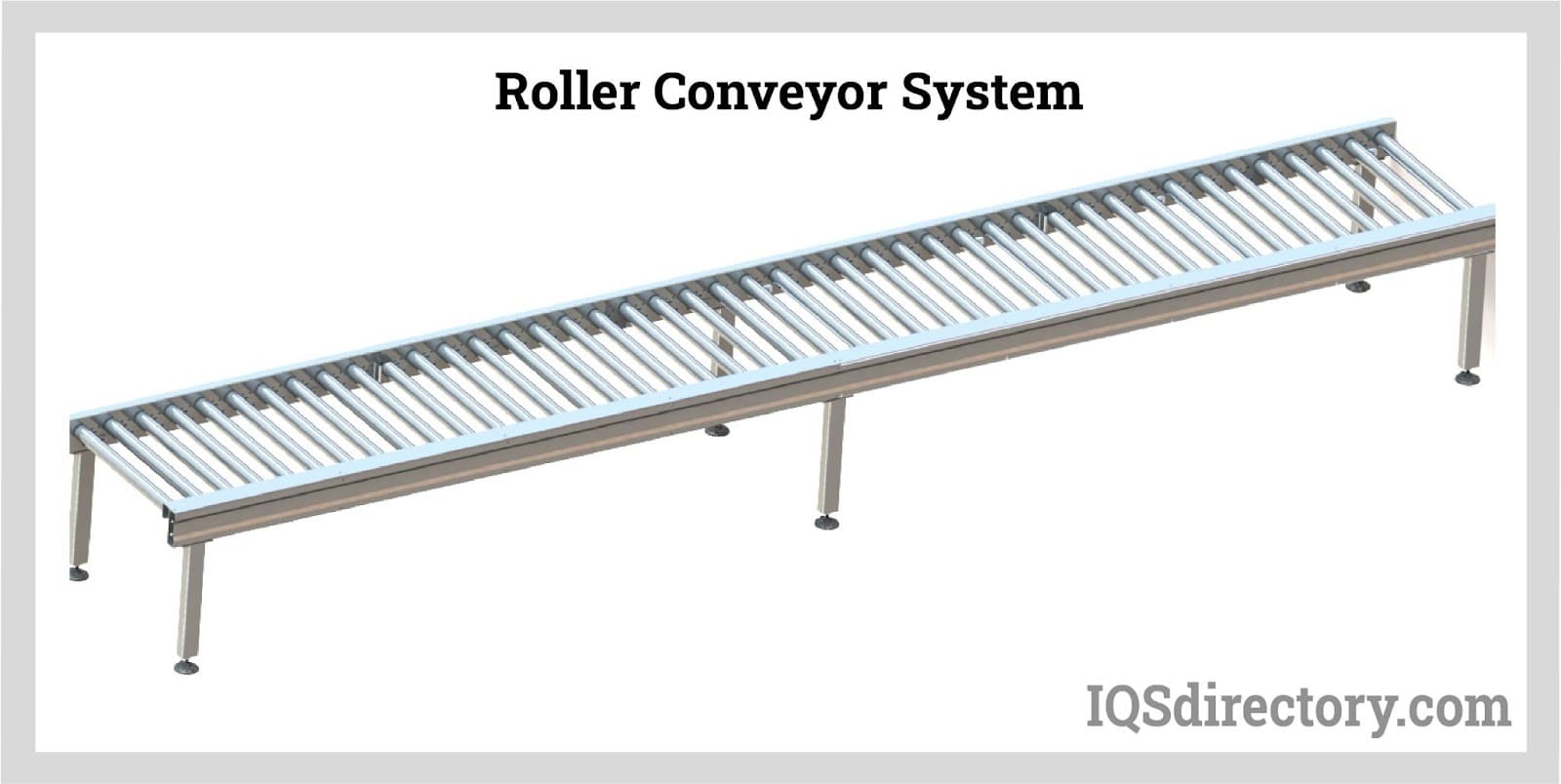
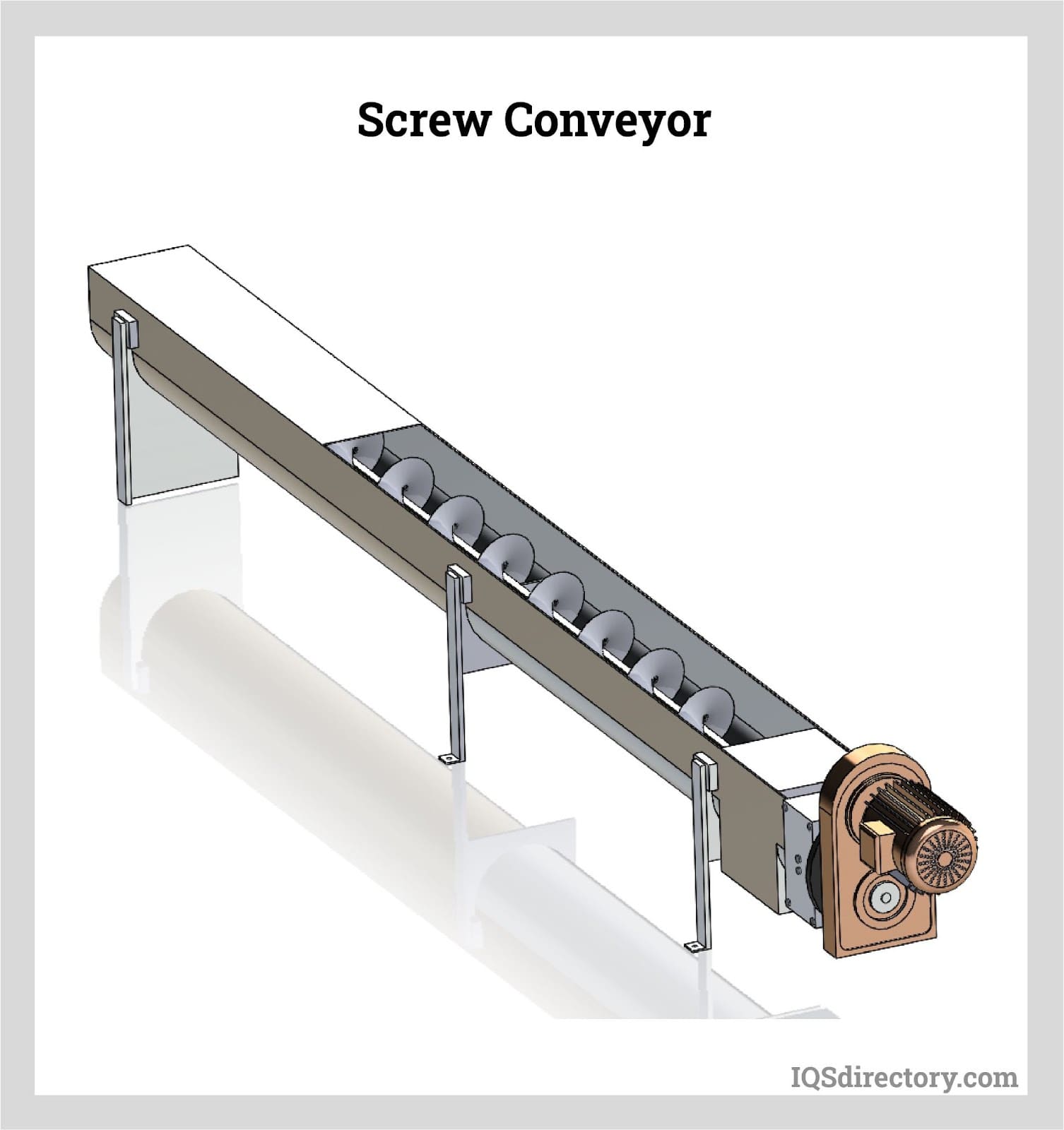
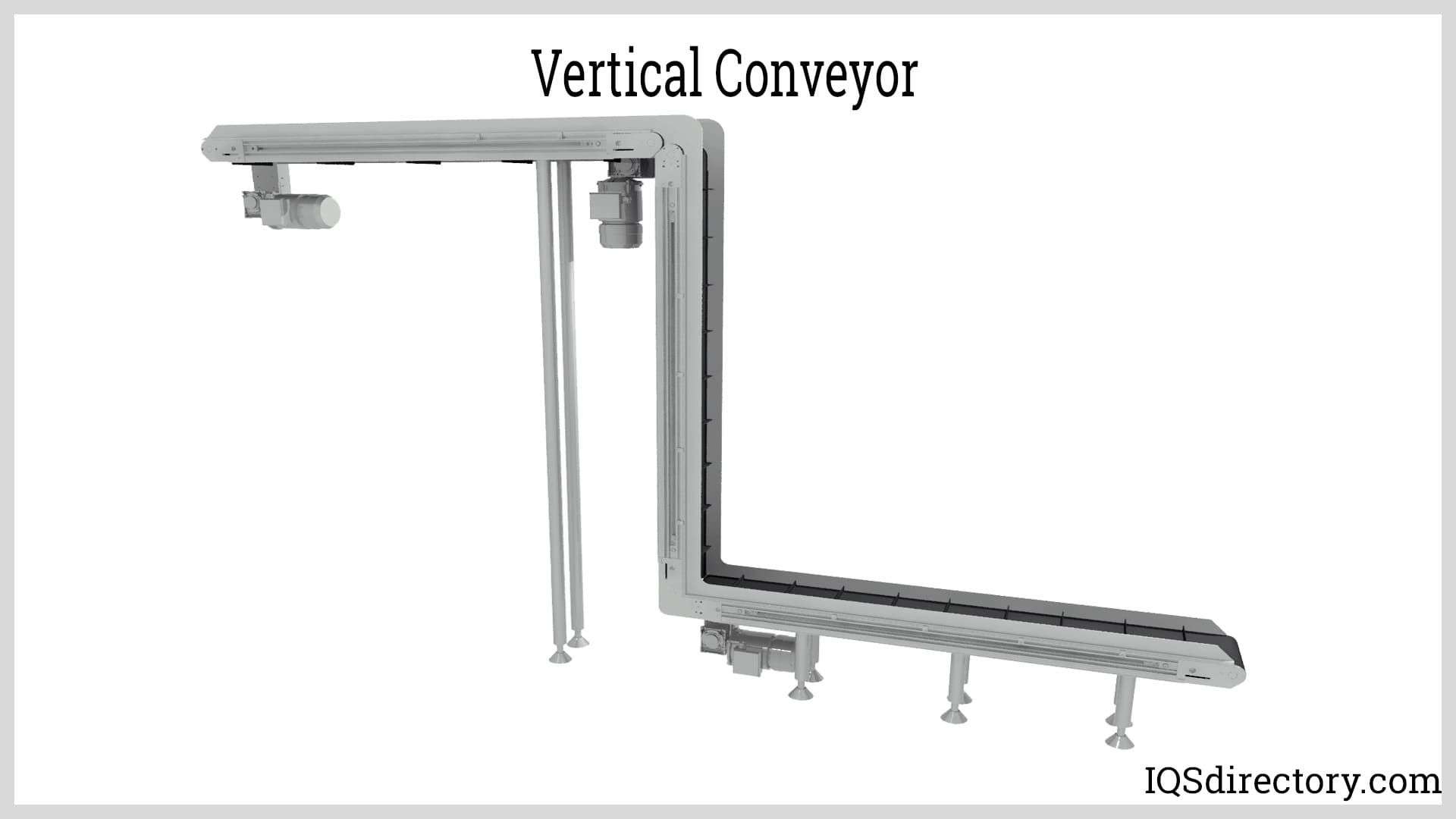
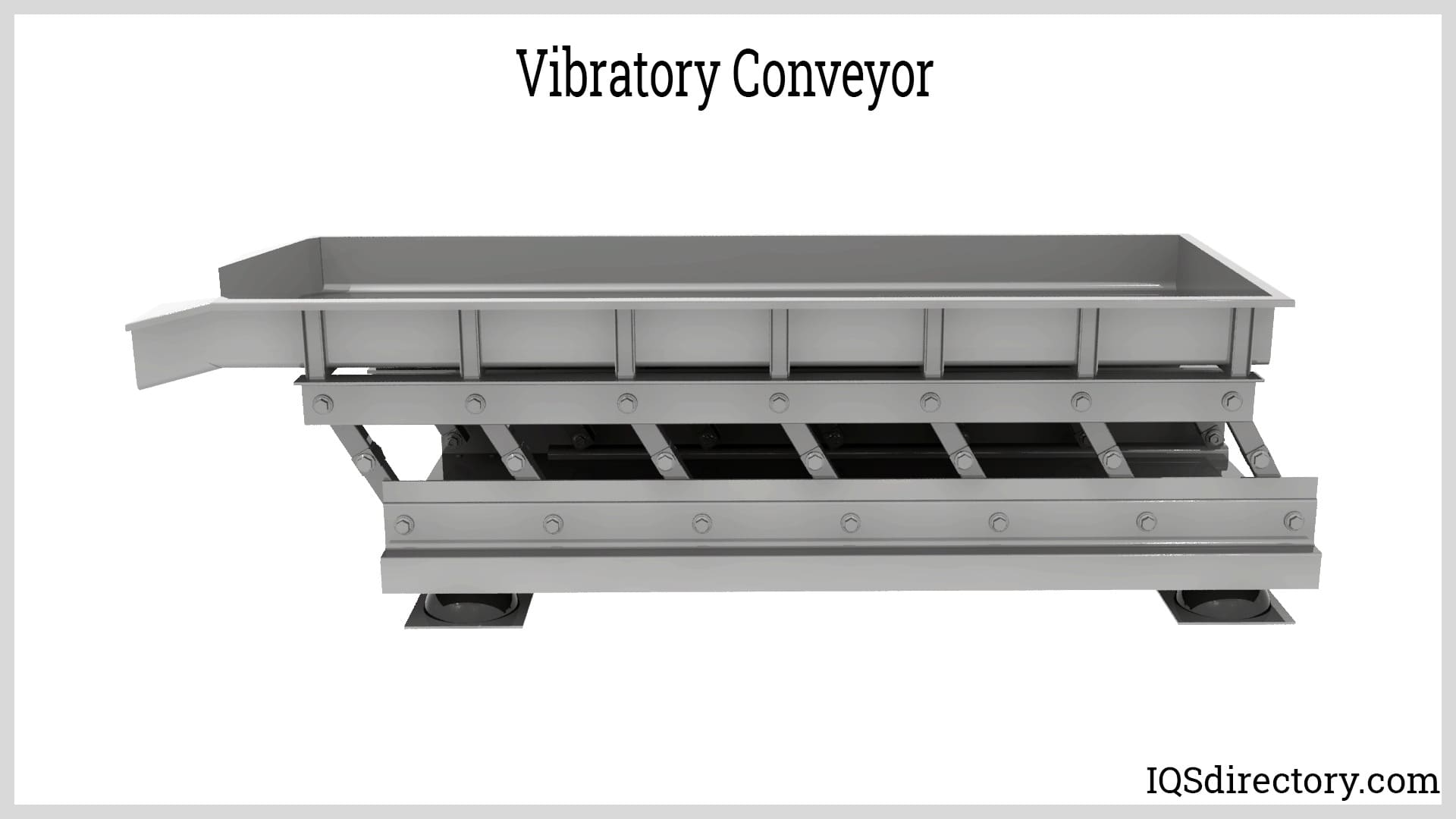
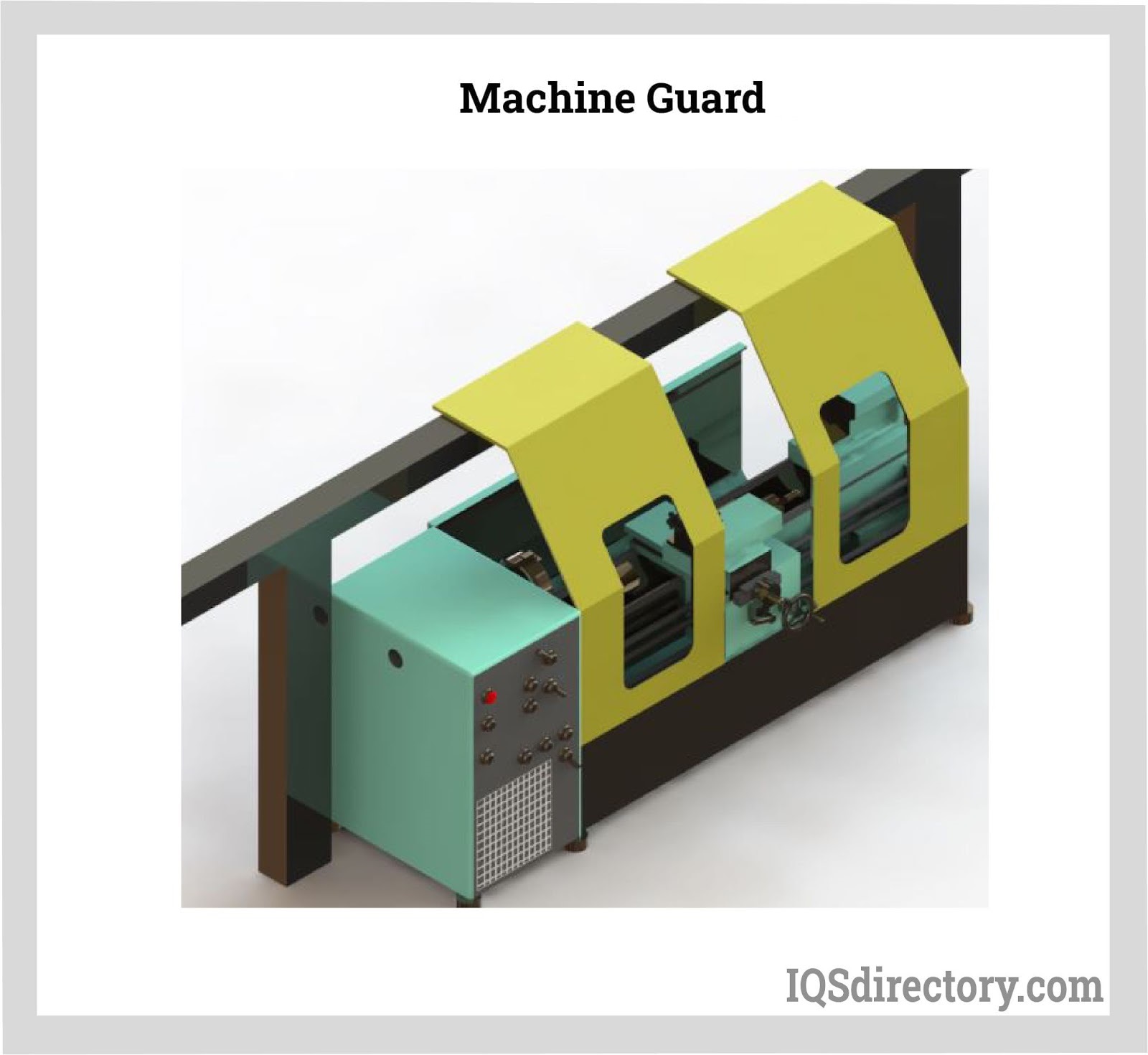
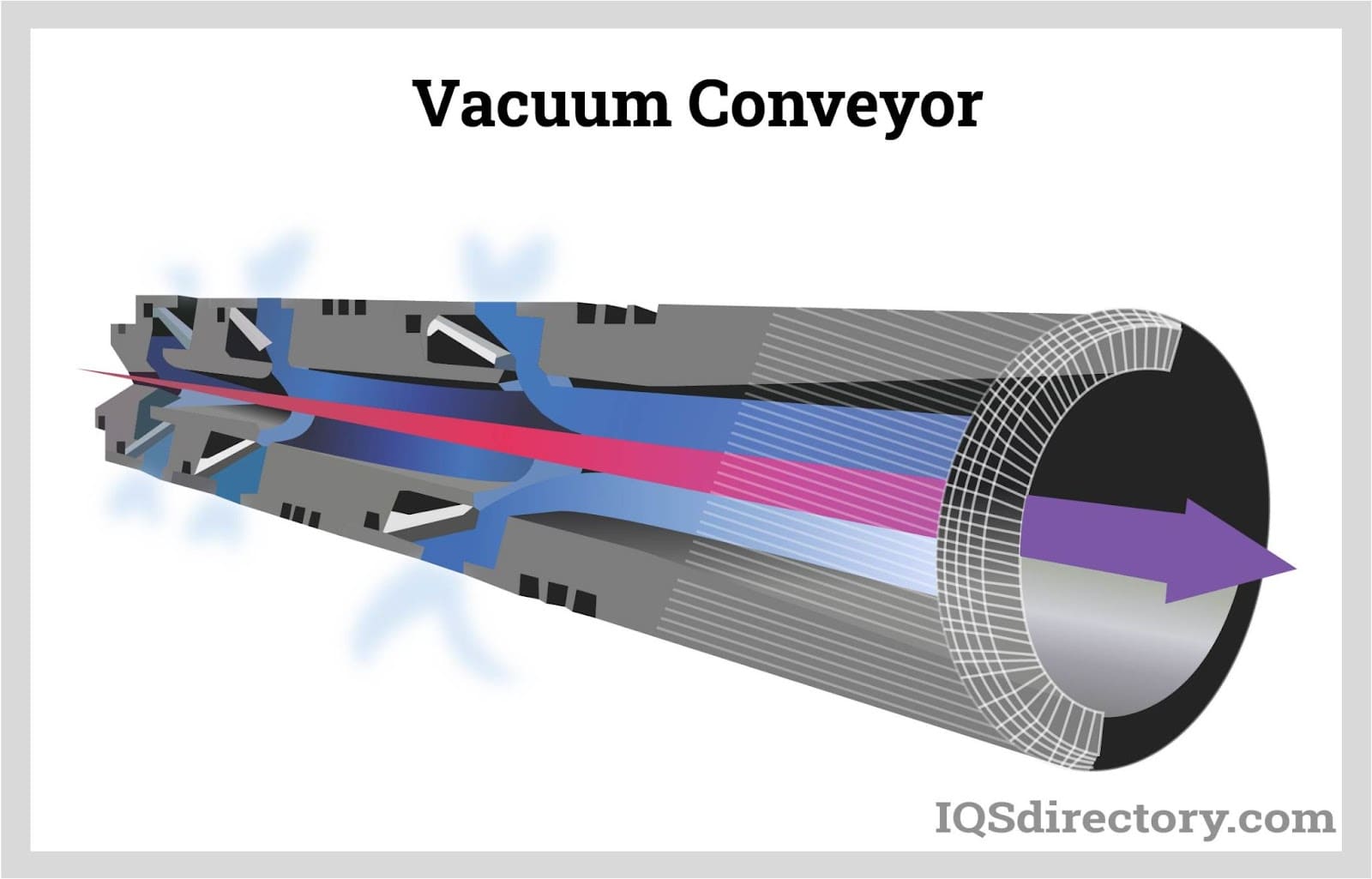
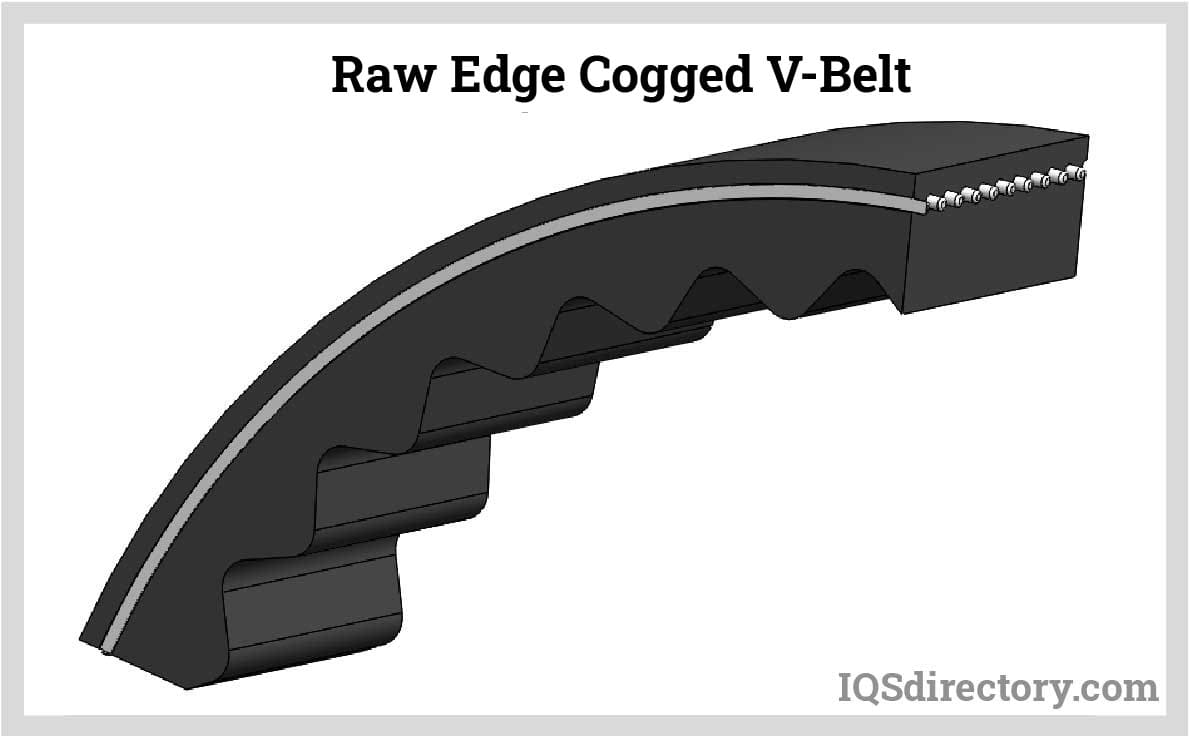
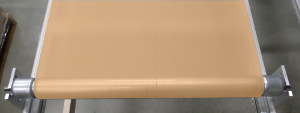 Conveyor Belting
Conveyor Belting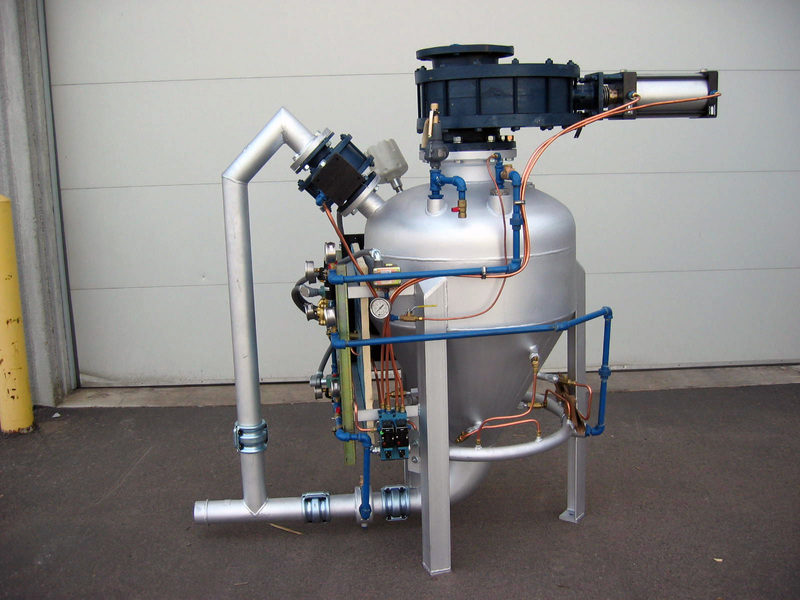 Conveyor Systems
Conveyor Systems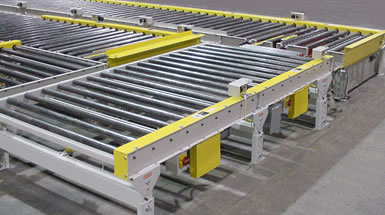 Conveyors
Conveyors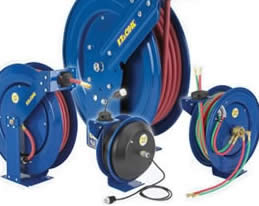 Hosereels
Hosereels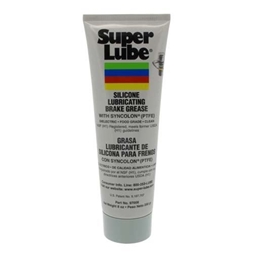 Industrial Lubricants
Industrial Lubricants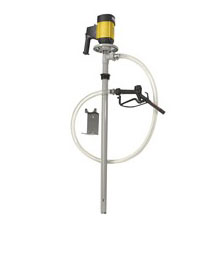 Lubricators
Lubricators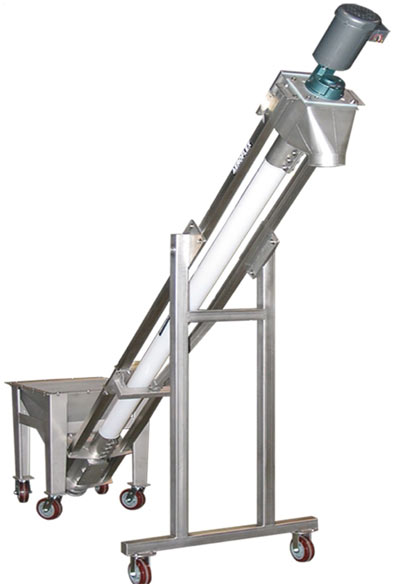 Screw Conveyors
Screw Conveyors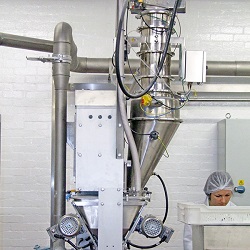 Pneumatic Conveyors
Pneumatic Conveyors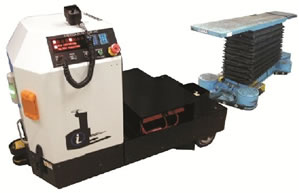 AGV
AGV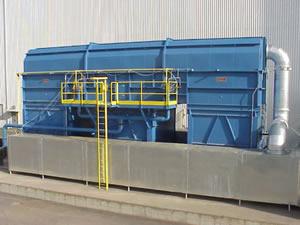 Air Pollution Control
Air Pollution Control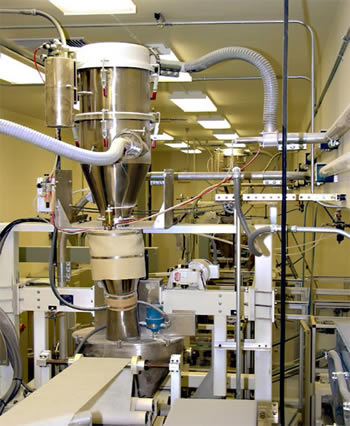 Assembly Machinery
Assembly Machinery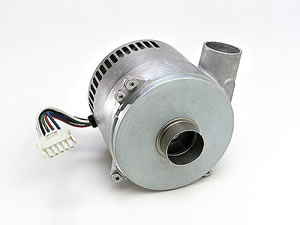 Blowers
Blowers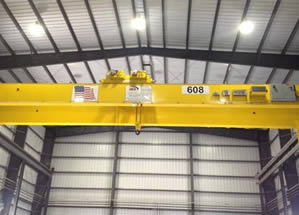 Cranes
Cranes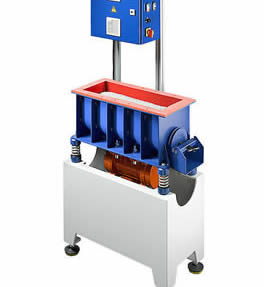 Deburring Machinery
Deburring Machinery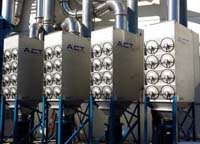 Dust Collectors
Dust Collectors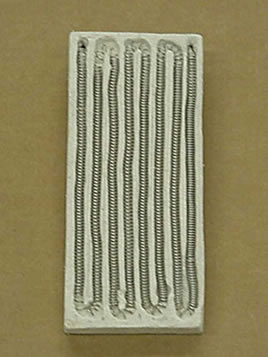 Heaters
Heaters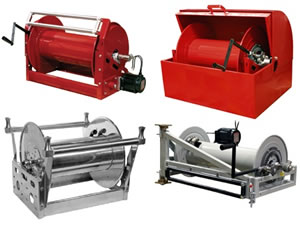 Hose Reels
Hose Reels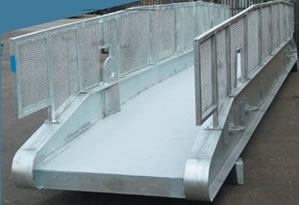 Mezzanines
Mezzanines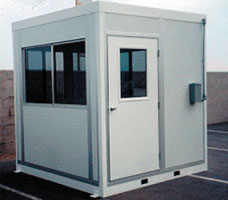 Modular Buildings
Modular Buildings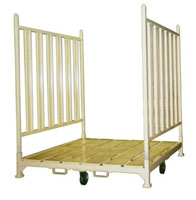 Storage Racks
Storage Racks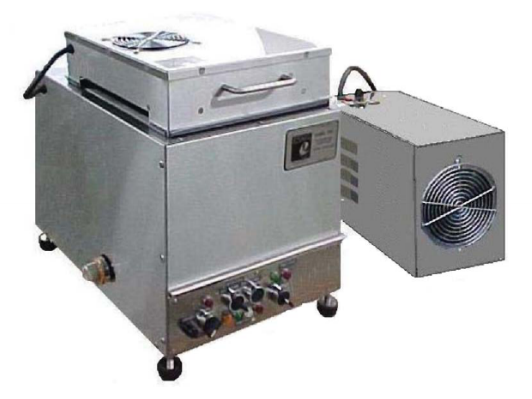 Ultrasonic Cleaners
Ultrasonic Cleaners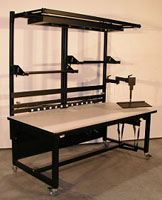 Work Benches
Work Benches